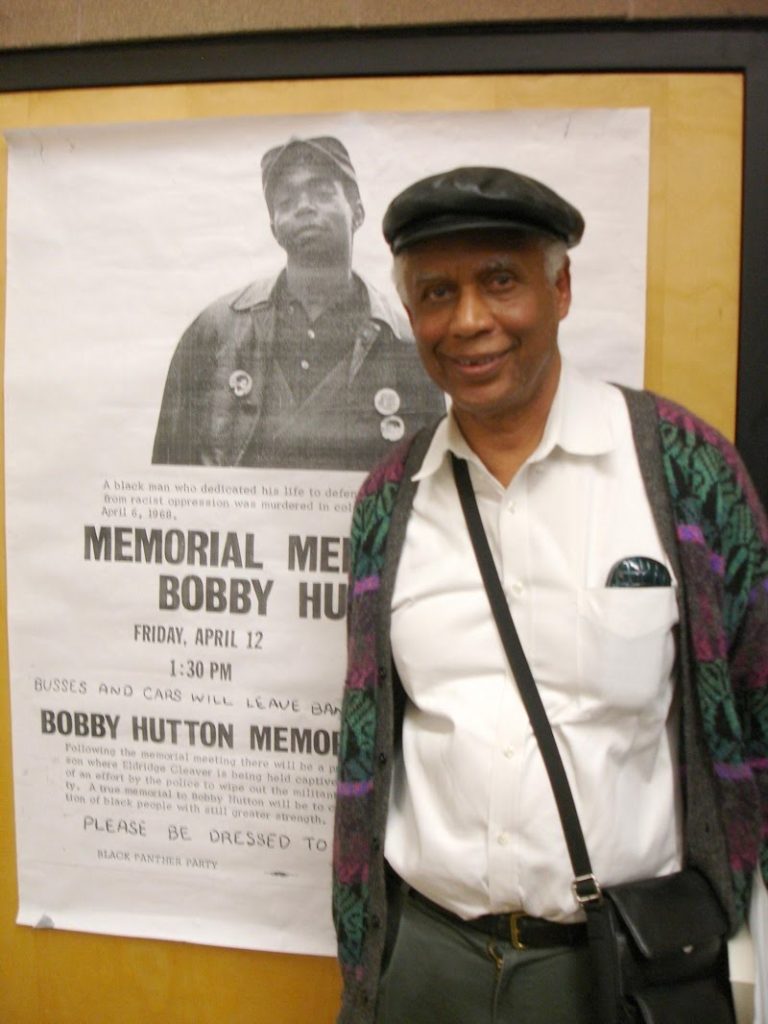Note: This review is part of an ongoing series meant to highlight the endeavors of Niebyl Proctor Marxist Library’s Cataloging Committee. The committee is working hard to create a publicly accessible catalog of the library’s collection approximately 12,000 texts from a variety of intellectual disciplines. We aim to center Black authors and subjects that are featured in this collection. Our growing catalog can be browsed directly, or by selecting the ‘Library Search’ link in the site navigation above. Thank you for your continued support. We are currently accepting donations through PayPal.
Toward the end of his life and distinguished career, William Edward Burghardt (W. E. B.) Du Bois became embroiled in a criminal indictment of his activities with the Peace Information Center (PIC), an organization whose aims were to distribute information regarding international peace and disarmament efforts. In battle for peace: The story of my 83rd birthday is a frank account of Du Bois and his associates’ efforts to clear his name and fight the war hysteria of post-World War II America. While the greater part of the book recounts the trial, peripheral events, and speeches that Du Bois engaged in to raise funds for the legal fees, the last chapter of the book reveals the supportive themes and social commentary that inform the proceedings. If nothing else, In battle for peace is disarmingly prescient in its final chapter, titled “Interpretations” (p. 160) — many issues of our day are in their nascent stage in Cold War America. In the shadow of McCarthyism, Du Bois dissects American corporate plutocracy and the tendrils of global wealth inequality in his recollection of his trial, with occasional comment by his wife at this time, Shirley Graham.
Du Bois uses the first few chapters to highlight his interest in Pan-Africanism, his habit of international travel and attendance at Peace Congresses, and his ambivalence toward birthday celebrations. He posits as peculiarly American the view of aged individuals as useless and abnormal. The strange fissure between American values and international movements plays a large role throughout this recollection, especially in later chapters.
The founding and management of the Peace Information Center, as detailed in chapter 5, was the reason for the indictment of W. E. B. Du Bois and his colleagues. The Center attempted to breach the American media blackout of international peace movements by distributing “Peacegrams” and reprinting the Stockholm Appeal, a disarmament initiative by the World Peace Council and originally signed by, among many other prominent cultural figures, Du Bois. For this, the Department of Justice demanded that the PIC register as “agents of a foreign principal” (p. 43) under the Foreign Agents Registration Act. When the parties of the PIC refused to do so, Du Bois and other members were indicted.
A recount of the speaking tour (meant to raise funds for the legal defense) and indictment trial commences. Particularly sobering are Du Bois’s comments on the nature of justice in America: “Justice is not free in the United States” (p. 108). Funds in the tens of thousands were required to structure a sound defense, and Du Bois reflects on the inability of many Black people confined in the justice system to pay necessary court fees. The peripheral accommodation and transportation costs were also prohibitive in this case, because the Du Bois’s legal team consisted of both Black and white members.
After the trial is over and the Peace Information Center members were rightfully acquitted, Du Bois reflects on the significance of an unfair and destructive indictment by the American government on American citizens spreading the word of peace in a warmongering state. Du Bois condemns the demand by the U.S. government for the complete unity of political beliefs and values, especially in light of the fact that most political motives in the U.S. are tied to the interests of corporate hegemony and resultant global colonialism. He decries the misuse and distribution of wealth by American capitalists to the harm of the national (and global) public. Today, we are witnessing how the enormously unequal distribution of wealth and power determines how one’s community is affected by a global virus. “American exceptionalism” means nothing to historically underfunded and overlooked Black and brown communities, wherein members are disproportionately becoming infected with COVID-19 at a higher rate.
Inequality has long been an issue, globally and in the U.S. In battle for peace reminds us that the struggle to counter injustice and advocate for peace is a perpetual act.

